Sunset Horse Facing Looking at a Sunset Drawing Easy
How to draw a horse
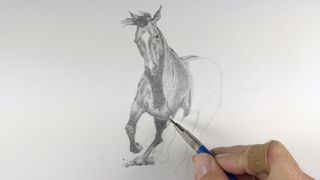
Have you always wanted to know how to draw a horse? Well, you've come to the right place! We know that learning how to draw animals is no easy feat, but in this handy step-by-step guide, we will teach you how to draw a horse and help you to perfect your technique.
We have gathered all the tips, techniques, and tutorials to help you draw a horse and to nail those finicky bits, like the legs, spine and head. Just watch the video below to get a detailed overview of how to draw a horse, and then scroll down when you're ready to read a step-by-step to master those finer details.
If you master how to draw a horse and fancy trying your skills with some other drawings, then check out our extensive collection of how to draw tutorials to learn how to draw everything from animals, humans, landscapes and flowers.
How to draw a horse: Step by step guide
If you can get your head around the anatomy of a horse, then drawing one will be far easier for you. Understanding the mechanics of a horse will allow you to create a more accurate and realistic drawing of a horse, which is why we are starting our step-by-step by exploring a horse's skeleton.
01. How to draw a horse's legs
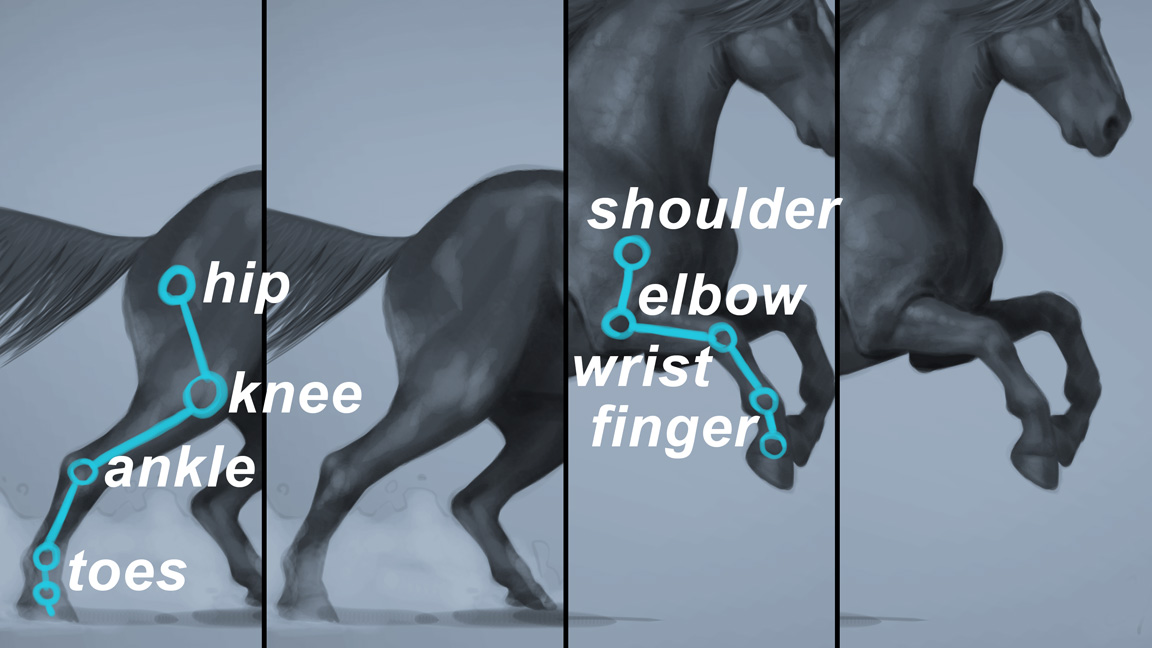
(Image: © Bobby Chiu)
Despite popular belief, a horse's knees are in fact not backwards-facing — they're just not as obvious as us humans. The same goes for a horse's shoulders, they aren't as distinct and are actually more front-facing.
A horse's hoof is very structurally similar to a human's middle finger or toe. Your process of drawing a horse will make a lot more sense when you understand these key points.
02. How to draw a horse spine
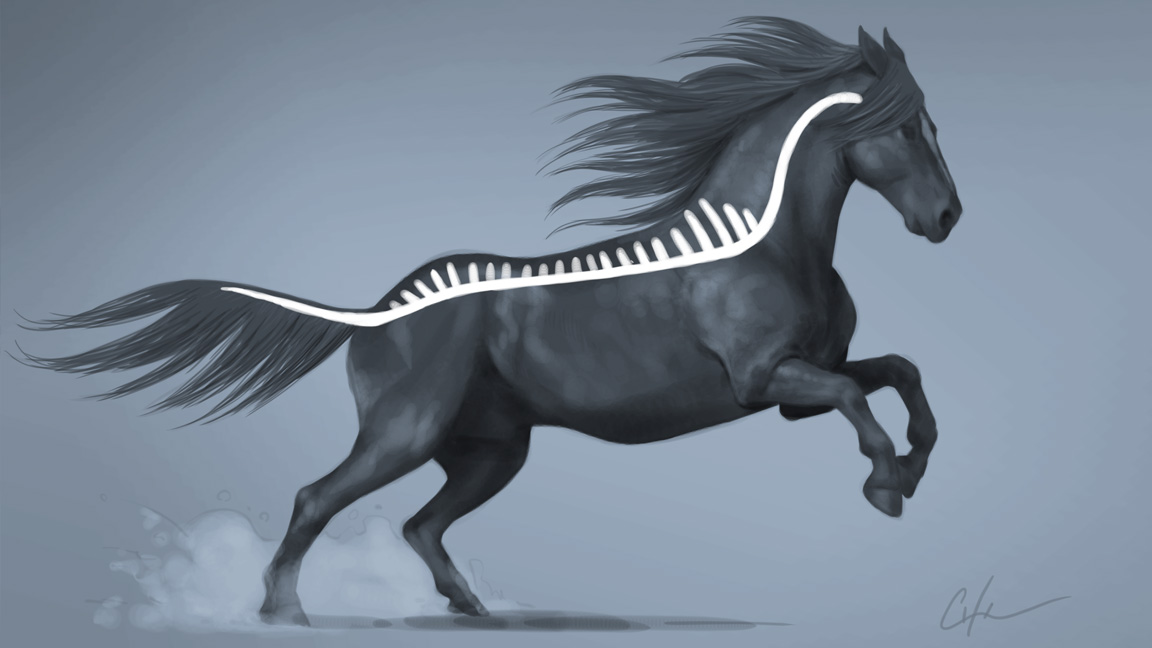
(Image: © Bobby Chiu)
The curve of a horse's back is not made by a curved spine. In fact, the spine is quite straight – the curves you see are the spinous processes, which are projections on each vertebra that muscles connect to. Above the shoulders, the spine runs closer to the middle of the neck than the back. By knowing where a horse's neck bends from, you will be able to draw a horse's neck better in different positions.
03. Understand the main skeleton

(Image: © Bobby Chiu)
A horse's rib cage has a similar shape to a human's, but remember ribs don't extend to the bottom of the belly. Also, muscle, fat and skin can make the rib cage look bigger than it really is.
What about a horse's head? Well, a horse's skull is triangular, with a large jaw that has a wide area for muscles to attach to. Meanwhile, a horse's pelvis is flatter than a human's because a horse doesn't stand upright, so its pelvis doesn't bear weight.
04. Draw the main shapes of a horse

(Image: © Bobby Chiu)
We're now ready to put pen to paper and draw a horse. Start with the front half of the torso, which is kind of bean-shaped. Then we have the front and back sides of the horse, which feel like padding around the bean.
The neck has to be thick because of the muscles required to hold the head up. For the horse's head, we can follow what we did previously with the skull and add some big muscle shapes towards the back of the jaw.
05. Create a loose gesture drawing
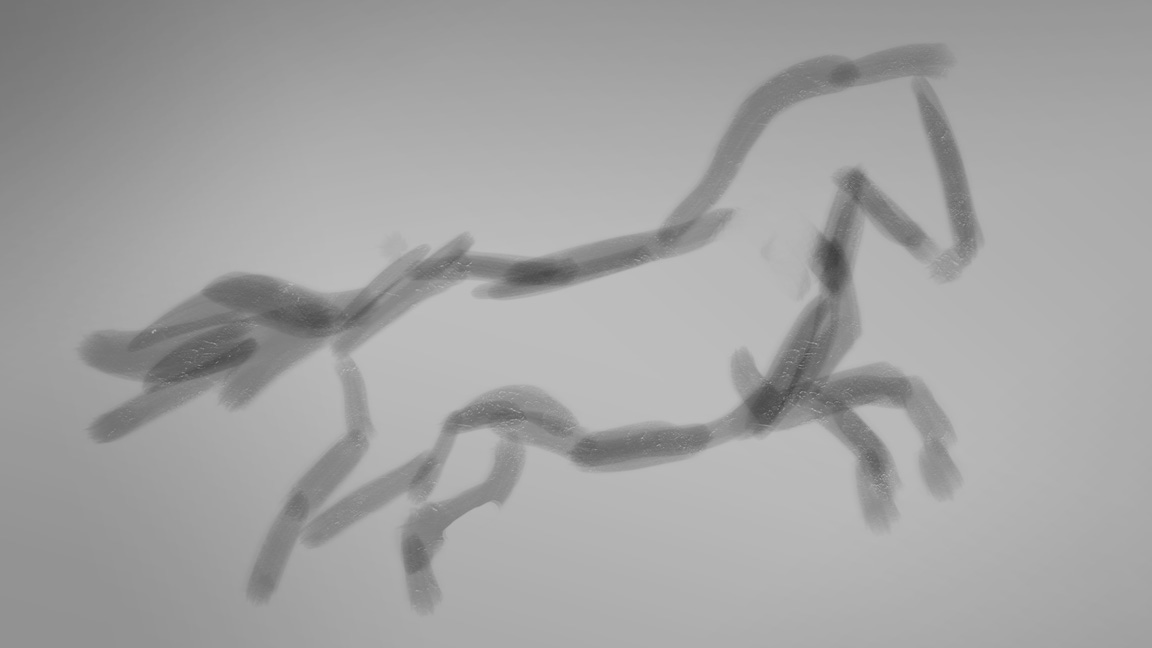
(Image: © Bobby Chiu)
Now that we understand the most important parts of a horse and have the basic shapes down, we can create a loose sketch. It's almost like a cave drawing, but you can see indications of the directions of the legs, the angle of the pelvis, the rib cage and midsection.
The head and neck are strongly indicated and the position of the tail shows that the horse is in motion. The gesture sketch communicates the most vital information about your subject.
06. Focus on sketch language

(Image: © Bobby Chiu)
Sketch language lets us take visual notes so that we can effectively finish our work later. In this case, we want to indicate landmarks where the horse's bones influence the skin surface the most, such as at the joints. This is where the indications of bones are clearest and lead into the muscular areas. We can use these indications to suggest the directions of the bones as well.
07. Redraw the horse in detail

(Image: © Bobby Chiu)
Accurate landmarks in the horse sketch make this job much easier. Look at every simplified line and see how more anatomical information can be added. Use straight lines for muscles that are stretched or taut with tension, and curved lines for parts that are softer or being compressed.
Add subtleties to the muscles and detail to the horse's features, to make the anatomy easier to read. While you're doing this, take care to maintain the essence of the original sketch.
08. Look at the subtle angles of your horse
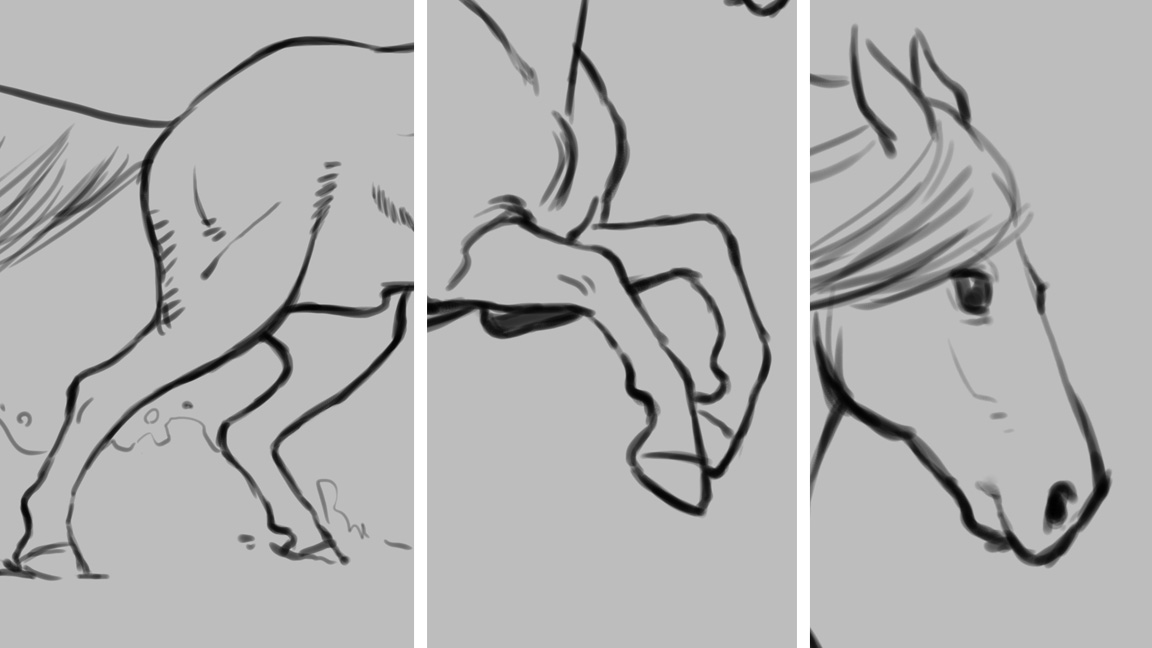
(Image: © Bobby Chiu)
Perfect profile or head-on drawings can feel graphic and staged. Think about subtle angles: for example, the horse's eyes and the position of its head could be almost in profile, with a hint of the other eye is visible to add more life. It's also important that the positions of the front and back pairs of legs are subtly different from one another – making them identical makes the horse look very robotic.
09. Think about line weight

(Image: © Bobby Chiu)
Line weight can communicate many things. We can use it to emphasise the size of the horse's torso. Line weight can also separate one element from the other, like in the front legs. Areas where bones are indicated are harder, which gives them sharper shadows, which can be represented with stronger line weight. For more subtle lines such as muscle definition, draw a few thin lines side by side to indicate a softer line.
10. Add context with secondary action
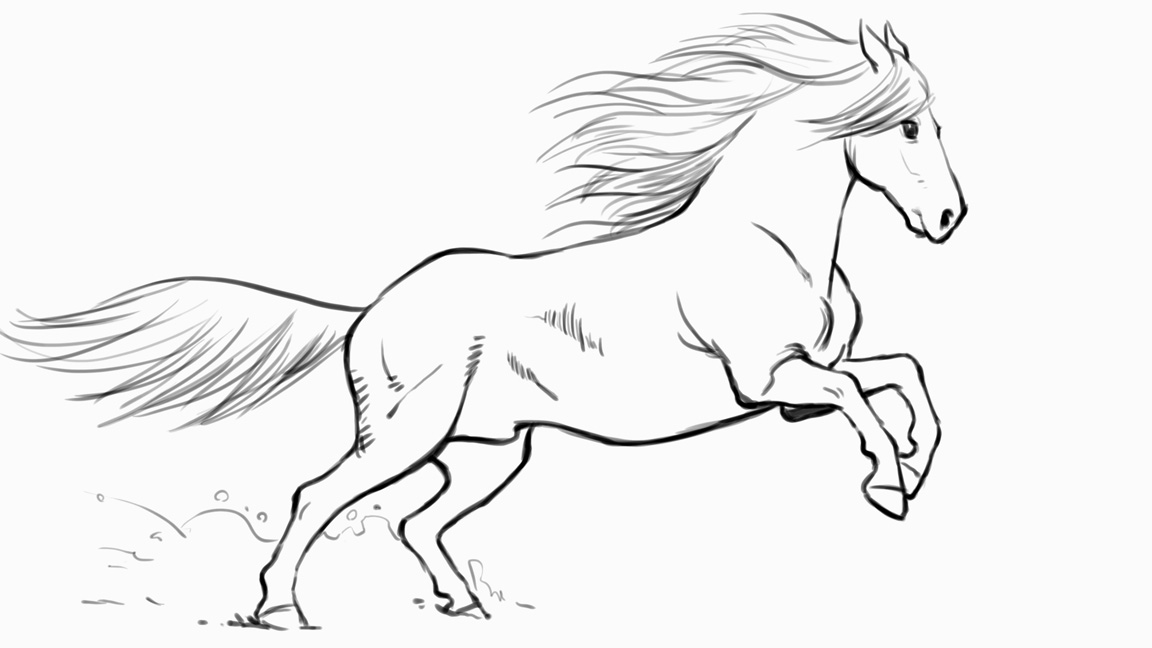
(Image: © Bobby Chiu)
The final step in how to draw a horse is to add secondary actions, such as the mane and tail hair blowing in the wind. These elements add dynamics to our drawings, and are vital for showing motion in action scenes.
When showing secondary action, remember to consider line weight and where shadows will fall. Secondary action can also refer to external elements that are affected by the horse, like a cloud of dust that the horse kicks up as it gallops.
Related articles:
- How to draw a face
- How to draw a cat
- The best pencils for colouring, drawing and sketching

Thank you for reading 5 articles this month* Join now for unlimited access
Enjoy your first month for just £1 / $1 / €1
*Read 5 free articles per month without a subscription

Join now for unlimited access
Try first month for just £1 / $1 / €1
Related articles
Source: https://www.creativebloq.com/how-to/how-to-draw-a-horse
Post a Comment for "Sunset Horse Facing Looking at a Sunset Drawing Easy"